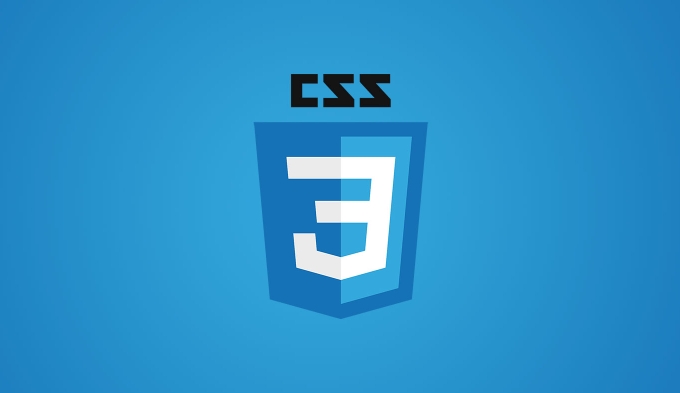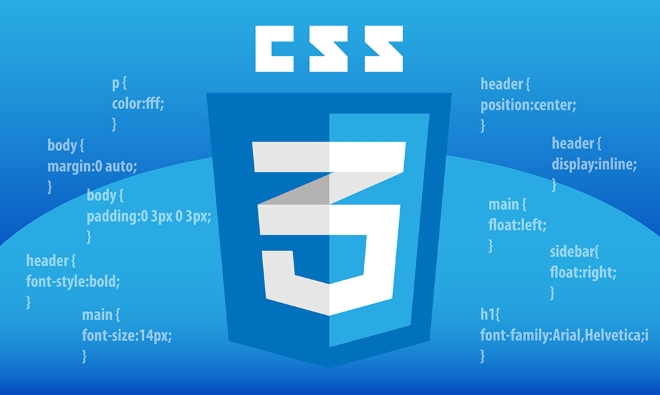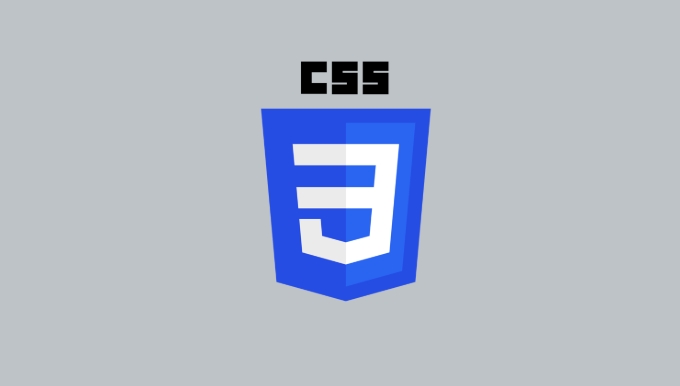Neumorphism is a UI style that combines flat and quasi-physical design, achieving a three-dimensional effect of floating or sagging elements through soft shadows. 1. The background and element colors need to be similar to the color to achieve a sense of fusion, such as #e0e0e0 for both body and buttons; 2. Use double shadows to create a three-dimensional sense, with the outer shadows 8px 8px 16px #c9c9c9 and -8px -8px 16px #ffffffff. When pressed, change to inset inner shadow and scale the elements; 3. It is recommended to round corners 12px~20px to keep soft; 4. Avoid borders to maintain seamless vision. It can be applied to buttons, input boxes, switches, cards and other elements. For example, cards use box-shadow: 10px 10px 20px #c9c9c9, -10px -10px 20px #ffffff. It is important to note that its low contrast affects readability, excessive shadows may affect performance, and may not comply with WCAG accessibility standards. Therefore, it should be used in static interfaces such as instrument panels and music players that emphasize beauty.

Neumorphism is a UI design style that creates a "float from the background" or "sink" visual effect through soft shadows and background colors that look like a physical button. It combines the advantages of flat design and simulative design, emphasizing simplicity but three-dimensionality.

Here is a simple CSS Neumorphism design example - a typical neumorphic button.
? Basic Neumorphic Button Example
HTML
<div class="neumorphic-button">Click Me</div>
CSS
.neumorphic-button {
width: 150px;
height: 60px;
background-color: #e0e0e0;
border-radius: 16px;
display: flex;
align-items: center;
justify-content: center;
font-family: 'Arial', sans-serif;
font-size: 18px;
color: #555;
cursor: pointer;
/* Key: Use box-shadow to create internal and external shadow effects*/
box-shadow:
8px 8px 16px #c9c9c9,
-8px -8px 16px #ffffff;
transition: box-shadow 0.3s ease, transform 0.2s ease;
}
/* "Sink" effect when pressed*/
.neumorphic-button:active {
box-shadow:
inset 4px 4px 8px #c9c9c9,
inset -4px -4px 8px #ffffff;
transform: scale(0.98);
}? Design points description
1. The background and element colors should be close
- The container background (such as body) and button background must be similar in colors to achieve a sense of "fusion".
- In the example, the body background is also recommended to set to
#e0e0e0or pure light gray.
body {
background-color: #e0e0e0;
margin: 0;
display: flex;
justify-content: center;
align-items: center;
min-height: 100vh;
}2. Double shadows are the key
- External Shadow:
8px 8px 16px #c9c9c9(dark color on the bottom right) - External shadow:
-8px -8px 16px #ffffff(bright color on the upper left) - When sagging, use the shadow inside
insetto reverse the direction to create the feeling of "pressing down"
3. The rounded corners should be soft
- Recommended
border-radius: 12px ~ 20px, being too sharp will ruin the style
4. Avoid using borders
- Borders will destroy the sense of "seamless fusion" and replace it with shadows and color transitions
? Extensible Neumorphic element types
You can create it in a similar way:

- Input box
- Switch (Toggle)
- Card
- Number keyboard buttons
For example, a neumorphic card:
.neumorphic-card {
width: 200px;
height: 120px;
background-color: #e0e0e0;
border-radius: 20px;
padding: 20px;
box-shadow:
10px 10px 20px #c9c9c9,
-10px -10px 20px #ffffff;
}?? Notes
- Low contrast : Neumorphism is poorly readable in small screens or strong light, be careful to use in critical operations
- Overuse of shadows affects performance : especially on mobile devices
- Accessibility issues : Inadequate color contrast may not comply with WCAG standards
Basically that's it. This style is very "good-looking", but it should be used in appropriate scenarios, such as dashboards, music player UIs, settings panels, etc. that emphasize beauty.

The above is the detailed content of css neumorphism design example. For more information, please follow other related articles on the PHP Chinese website!

Hot AI Tools

Undress AI Tool
Undress images for free

Undresser.AI Undress
AI-powered app for creating realistic nude photos

AI Clothes Remover
Online AI tool for removing clothes from photos.

Clothoff.io
AI clothes remover

Video Face Swap
Swap faces in any video effortlessly with our completely free AI face swap tool!

Hot Article

Hot Tools

Notepad++7.3.1
Easy-to-use and free code editor

SublimeText3 Chinese version
Chinese version, very easy to use

Zend Studio 13.0.1
Powerful PHP integrated development environment

Dreamweaver CS6
Visual web development tools

SublimeText3 Mac version
God-level code editing software (SublimeText3)

Hot Topics
 CSS tutorial for creating loading spinners and animations
Jul 07, 2025 am 12:07 AM
CSS tutorial for creating loading spinners and animations
Jul 07, 2025 am 12:07 AM
There are three ways to create a CSS loading rotator: 1. Use the basic rotator of borders to achieve simple animation through HTML and CSS; 2. Use a custom rotator of multiple points to achieve the jump effect through different delay times; 3. Add a rotator in the button and switch classes through JavaScript to display the loading status. Each approach emphasizes the importance of design details such as color, size, accessibility and performance optimization to enhance the user experience.
 Addressing CSS Browser Compatibility issues and prefixes
Jul 07, 2025 am 01:44 AM
Addressing CSS Browser Compatibility issues and prefixes
Jul 07, 2025 am 01:44 AM
To deal with CSS browser compatibility and prefix issues, you need to understand the differences in browser support and use vendor prefixes reasonably. 1. Understand common problems such as Flexbox and Grid support, position:sticky invalid, and animation performance is different; 2. Check CanIuse confirmation feature support status; 3. Correctly use -webkit-, -moz-, -ms-, -o- and other manufacturer prefixes; 4. It is recommended to use Autoprefixer to automatically add prefixes; 5. Install PostCSS and configure browserslist to specify the target browser; 6. Automatically handle compatibility during construction; 7. Modernizr detection features can be used for old projects; 8. No need to pursue consistency of all browsers,
 Creating custom shapes with css clip-path
Jul 09, 2025 am 01:29 AM
Creating custom shapes with css clip-path
Jul 09, 2025 am 01:29 AM
Use the clip-path attribute of CSS to crop elements into custom shapes, such as triangles, circular notches, polygons, etc., without relying on pictures or SVGs. Its advantages include: 1. Supports a variety of basic shapes such as circle, ellipse, polygon, etc.; 2. Responsive adjustment and adaptable to mobile terminals; 3. Easy to animation, and can be combined with hover or JavaScript to achieve dynamic effects; 4. It does not affect the layout flow, and only crops the display area. Common usages are such as circular clip-path:circle (50pxatcenter) and triangle clip-path:polygon (50%0%, 100 0%, 0 0%). Notice
 What is the difference between display: inline, display: block, and display: inline-block?
Jul 11, 2025 am 03:25 AM
What is the difference between display: inline, display: block, and display: inline-block?
Jul 11, 2025 am 03:25 AM
Themaindifferencesbetweendisplay:inline,block,andinline-blockinHTML/CSSarelayoutbehavior,spaceusage,andstylingcontrol.1.Inlineelementsflowwithtext,don’tstartonnewlines,ignorewidth/height,andonlyapplyhorizontalpadding/margins—idealforinlinetextstyling
 Styling visited links differently with CSS
Jul 11, 2025 am 03:26 AM
Styling visited links differently with CSS
Jul 11, 2025 am 03:26 AM
Setting the style of links you have visited can improve the user experience, especially in content-intensive websites to help users navigate better. 1. Use CSS's: visited pseudo-class to define the style of the visited link, such as color changes; 2. Note that the browser only allows modification of some attributes due to privacy restrictions; 3. The color selection should be coordinated with the overall style to avoid abruptness; 4. The mobile terminal may not display this effect, and it is recommended to combine it with other visual prompts such as icon auxiliary logos.
 What is the CSS Painting API?
Jul 04, 2025 am 02:16 AM
What is the CSS Painting API?
Jul 04, 2025 am 02:16 AM
TheCSSPaintingAPIenablesdynamicimagegenerationinCSSusingJavaScript.1.DeveloperscreateaPaintWorkletclasswithapaint()method.2.TheyregisteritviaregisterPaint().3.ThecustompaintfunctionisthenusedinCSSpropertieslikebackground-image.Thisallowsfordynamicvis
 How to create responsive images using CSS?
Jul 15, 2025 am 01:10 AM
How to create responsive images using CSS?
Jul 15, 2025 am 01:10 AM
To create responsive images using CSS, it can be mainly achieved through the following methods: 1. Use max-width:100% and height:auto to allow the image to adapt to the container width while maintaining the proportion; 2. Use HTML's srcset and sizes attributes to intelligently load the image sources adapted to different screens; 3. Use object-fit and object-position to control image cropping and focus display. Together, these methods ensure that the images are presented clearly and beautifully on different devices.
 What are common CSS browser inconsistencies?
Jul 26, 2025 am 07:04 AM
What are common CSS browser inconsistencies?
Jul 26, 2025 am 07:04 AM
Different browsers have differences in CSS parsing, resulting in inconsistent display effects, mainly including the default style difference, box model calculation method, Flexbox and Grid layout support level, and inconsistent behavior of certain CSS attributes. 1. The default style processing is inconsistent. The solution is to use CSSReset or Normalize.css to unify the initial style; 2. The box model calculation method of the old version of IE is different. It is recommended to use box-sizing:border-box in a unified manner; 3. Flexbox and Grid perform differently in edge cases or in old versions. More tests and use Autoprefixer; 4. Some CSS attribute behaviors are inconsistent. CanIuse must be consulted and downgraded.






